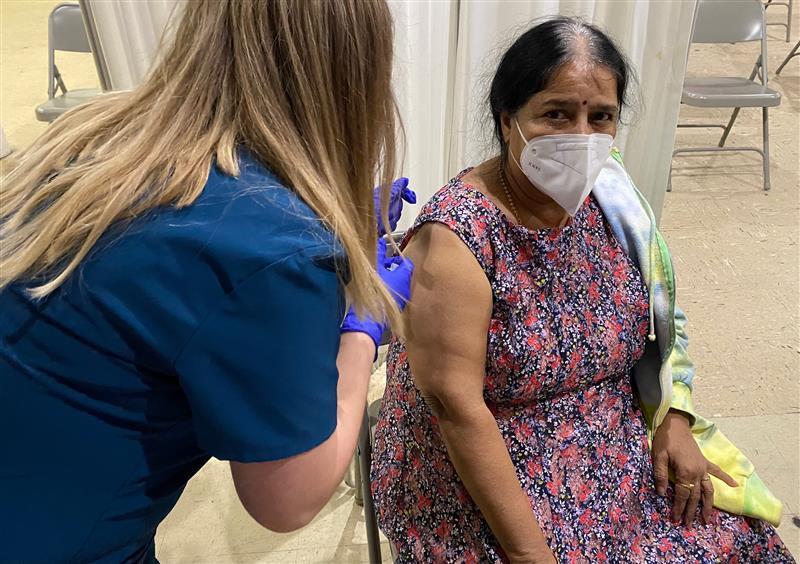

COVID Study Affirms Health Center Value
Community health centers like Zufall have assumed leadership roles in battling COVID-19 throughout the country over the last two years and now, a new study has confirmed their significant impact on reducing infections and saving lives.
A joint analysis by the National Association of Community Health Centers (NACHC) and Morehouse School of Medicine’s National COVID-19 Resiliency Network compared the rate of infection and mortality from COVID in areas with and without federally qualified community health centers. Their study determined that communities with such centers had 200 fewer cases of infection and nine fewer deaths per 100,000 people.
“We’re proud that health centers have met the challenge of the COVID-19 public health emergency,” said Ron Yee, MD, chief medical officer at NACHC. “They have saved lives and provided a trusted and safe place for families to get vaccinated and get answers and facts.”
Since early 2020, Zufall Health has been one of the few health care practices in New Jersey to remain open for in-person visits, even at the height of the coronavirus surge.
“It is truly gratifying to see statistics confirming our efforts are meaningfully making a difference for our vulnerable patient population,” said Rina Ramirez, M.D., Zufall’s chief medical officer.
According to Ramirez, Zufall has administered more than 40,000 COVID tests since March 2020 and over 33,000 COVID vaccinations since December 2020. In addition, Zufall has facilitated access to testing and vaccines, especially to reach people who have been disproportionately affected by the pandemic. Collaborating with various agencies and organizations, Zufall has conducted numerous off-site events in parks, parking lots, homeless shelters, senior and public housing buildings, farms, municipal facilities, community centers, schools, and churches.
“For the foreseeable future, we’ll be continuing our on-site and off-site efforts to make access to testing, vaccinations, and primary care services as easy and convenient as possible for our patients,” said Ramirez, “so we can continue to impact the decline in the number of infections and deaths.”

